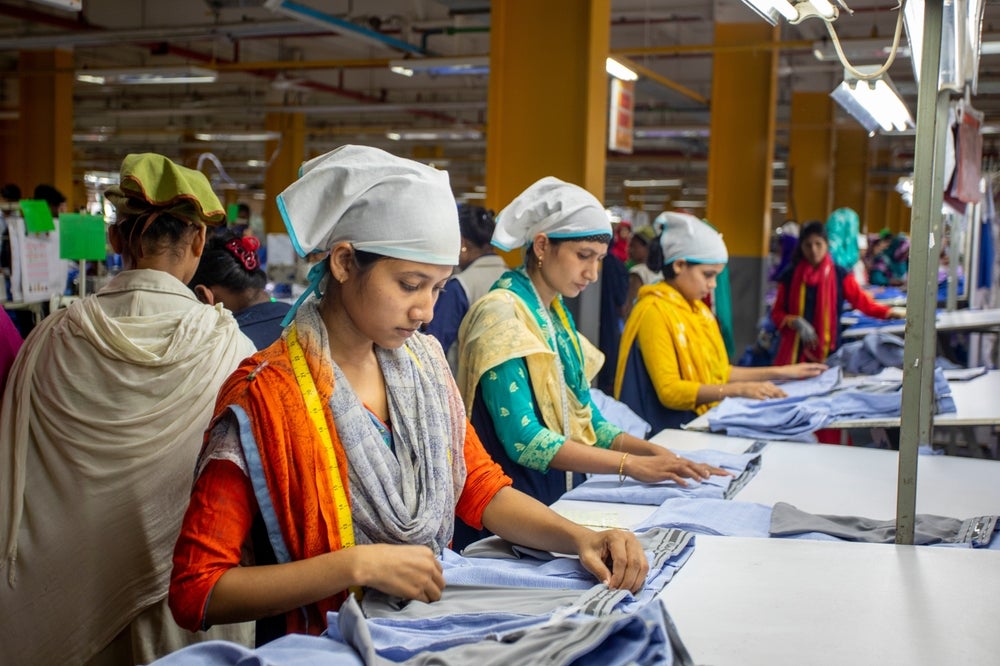
The International Accord for Health and Safety in the Garment and Textile Industry (International Accord), established on 6 November 2023, came shortly after the expiration of the previous safety programme.
This extended commitment to a comprehensive safety programme is said to represent an opportunity for brands that may have previously fallen short in assuming responsibility for the well-being of their workers.
So far 48 brands have pledged their commitment to the six-year legally binding safety programme to ensure the safety of garment workers across the globe.
Clean Clothes Campaign criticised several other prominent brands including furniture retail company, IKEA and French sporting goods retailer, Decathlon that have abstained from signing the agreement, adding they are “denying their workers access to the Accord’s training and complaint mechanism, and instead, relying on less rigorous social auditing methods, perpetuating risks to workers’ safety.”
IKEA responded to these claims and told Just Style that it “under no circumstances” accepts breaches in human rights, requirements set for working conditions in its supply chain, or productions not living up to its safety standards.
The Swedish company claims its supplier code of conduct compliance, IWAY, is mandatory for all its suppliers and service providers.
“IWAY sets clear requirements and ways of working on environmental, social and working conditions, animal welfare, including fire and building safety,” said IKEA.
IKEA explained it conducts “announced and unannounced” audits of its suppliers to ensure compliance. If deviations are found, IKEA said it works with suppliers to improve working conditions and if repeated or serious violations occur, the company confirms it can terminate business relationships.
Although the retailer says it welcomes commitments to increase standards and working conditions in the production sector, it chooses to remain independent from the International Accord.
The company added: “We believe that our own systems, which are based on decades of experience and cooperation with thousands of suppliers across the world, best enable us to further improve and strengthen conditions in the production sector and beyond.”
Decathlon told Just Style it has always considered human safety and rights as priorities.
Like IKEA, Decathlon said it has its way of prioritising the safety of its workers through its “Vigilance plan” and its “Code of conduct for manufacturing suppliers” and confirmed that all its strategic suppliers in Bangladesh received training.
Through the company’s Building and Electrical Safety (BES) project, unveiled in response to the launch of the Accord, Decathlon said: “We undertake building safety-focused audits with specialised third-party (Bureau Veritas). In addition, building safety audits are mandatory in the opening procedure of our suppliers in Bangladesh.”
By signing the International Accord, brands commit to ensuring the safety of factories in at least one of the countries covered by the programme.
The accord, which initially spans three years, is automatically extendable for an additional three years.
The International Accord is an evolution of three preceding Accord agreements, with the initial accord implemented in the aftermath of the tragic Rana Plaza collapse in April 2013.
Presently, the Accord operates country-specific programmes in Bangladesh and Pakistan but aims to expand its reach to more countries where unsafe working conditions persist.
Signatories of the International Accord are required to endorse at least one of these country programmes.
Numerous current signatories of the Pakistan programme, as well as previous signatories of the international agreement, are expected to join in the upcoming weeks.
The Accord model claims to have “drastically” reduced factory incidents in Bangladesh and is currently making real improvements for workers in Pakistan.



